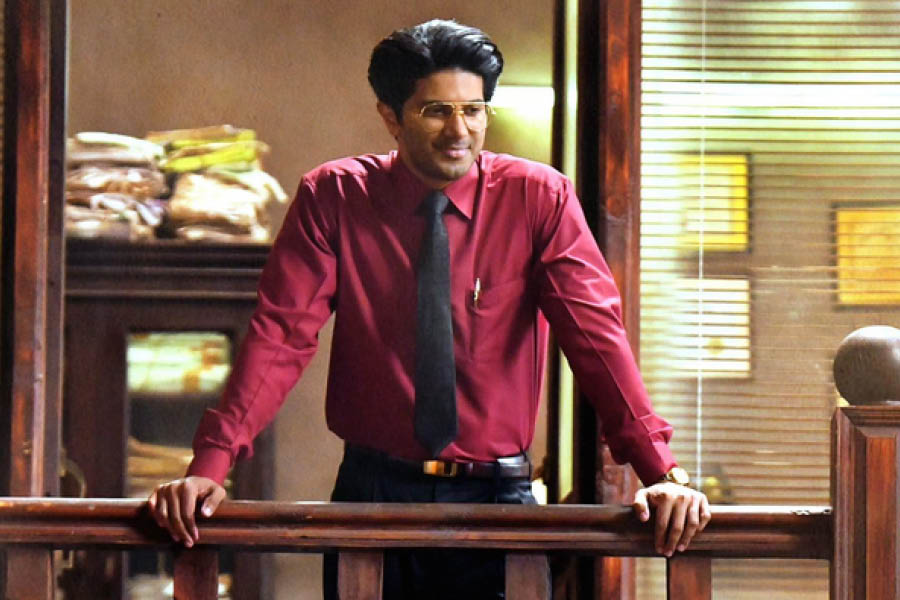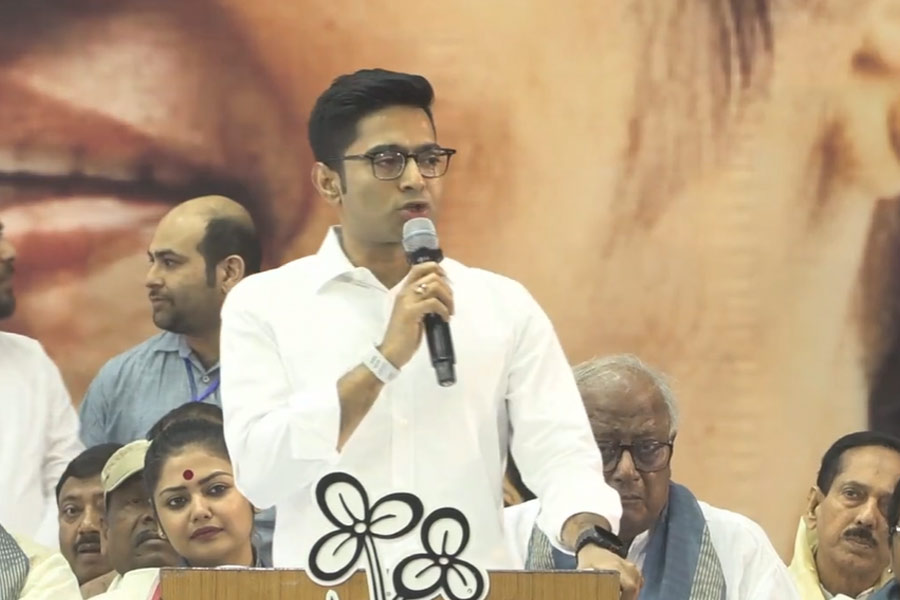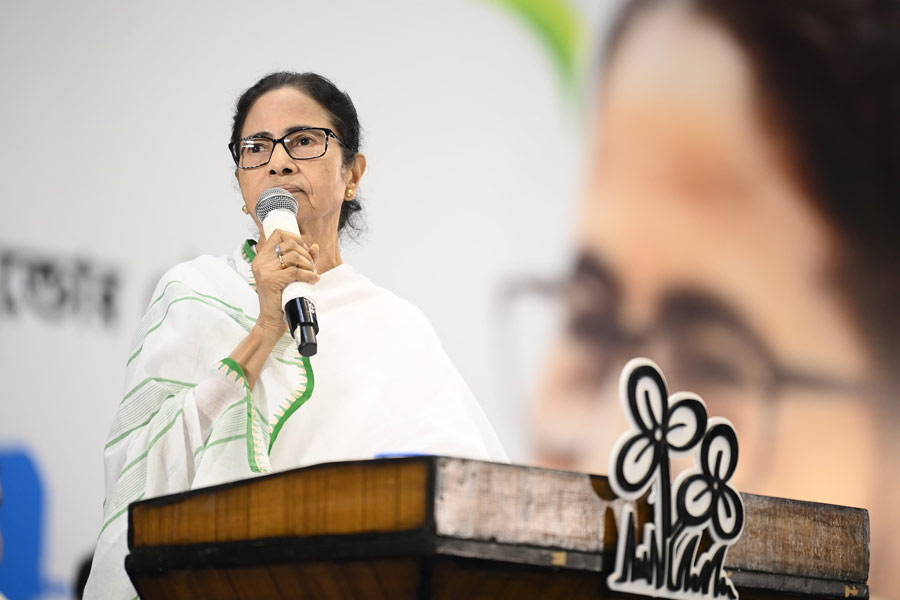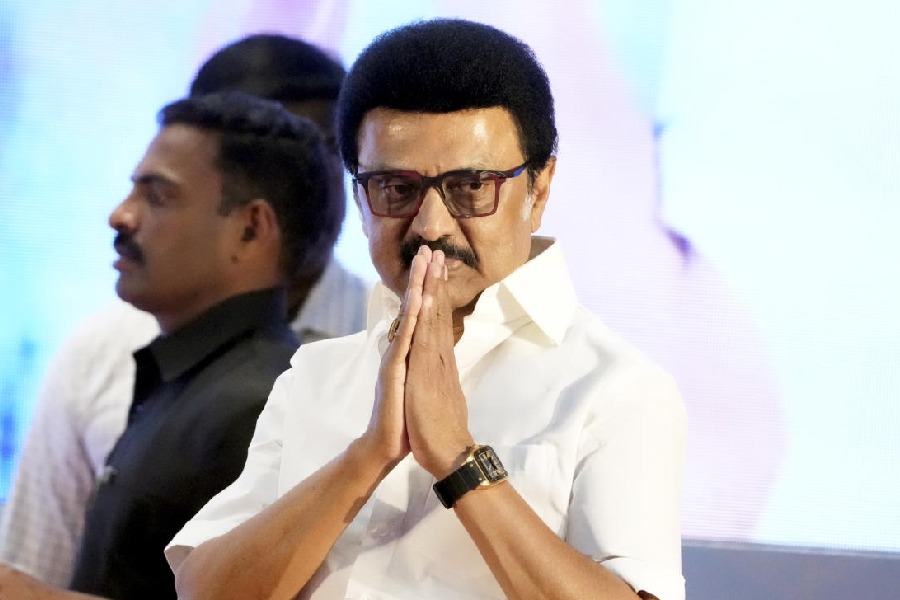Lucky Baskhar, directed by Venky Atluri, thrives on twists, tension and Dulquer Salmaan’s ability to bring alive a character sacrificing his moral fibre to earn a quick buck. Set in the late 1980s and early 1990s, the Telugu language heist drama tracks how Baskhar (Dulquer Salmaan), a humble bank employee, hurtles down a treacherous path while chasing his get-rich-quick ways.
The story kicks off with Baskhar struggling to make ends meet for his wife Sumathi (Meenakshi Chaudhary), young son and ailing father. He’s a man on the edge as the debts keep mounting. The scene in which Baskhar can’t afford three vada pavs drives home his desperation, which lures him to try out a scam.
Setting the film in 1989-1992 means CCTV cameras and surveillance systems didn’t exist, and the depiction of this period provides a compelling backdrop for Baskhar’s moral descent from a downbeat office clerk to a cunning operator in the murky world of banking and money laundering.
While the first half of Lucky Baskhar is relatively straightforward, the film takes a sharp turn after interval. Having tasted quick money, deception becomes Baskhar’s second nature. As the plot delves into the intricate web of money laundering and the complicity of everyone from small-time business owners to high-ranking bank officials, the audience is on tenterhooks, wondering if Baskhar can really extricate himself from this mess at the end.
Dulquer Salmaan, who has become synonymous with understated performances, makes Baskhar an overconfident, arrogant and ruthless character. His physical transformation, too, is noteworthy: the look, designed by Archana Rao, changes subtly as Baskhar gets rich. His clothes become sharper and his demeanour is more self-assured. It’s a performance that draws you in, making you feel for him even as you question his choices.
Meenakshi Chaudhary as Sumathi provides a foil to Baskhar. She is not just a dutiful wife but also the moral centre of the film, challenging Baskhar’s decisions and reminding him of the man he once was. The couple’s dynamic is developed thoughtfully, with snippets of their shared life coming through a well-executed song.
Baskhar often breaks the fourth wall, and the narrative technique of creating tension before revealing pivotal moments through strategic flashbacks is intriguing. Unfolding in a lower-middle class Bombay neighbourhood, the production design by Vinesh Banglan is remarkable. Cinematographer Nimish Ravi’s camera snakes through the grey, cramped lanes and worn-down interiors, which also reflects the sense of entrapment that Baskhar feels both in his financial and personal life.










